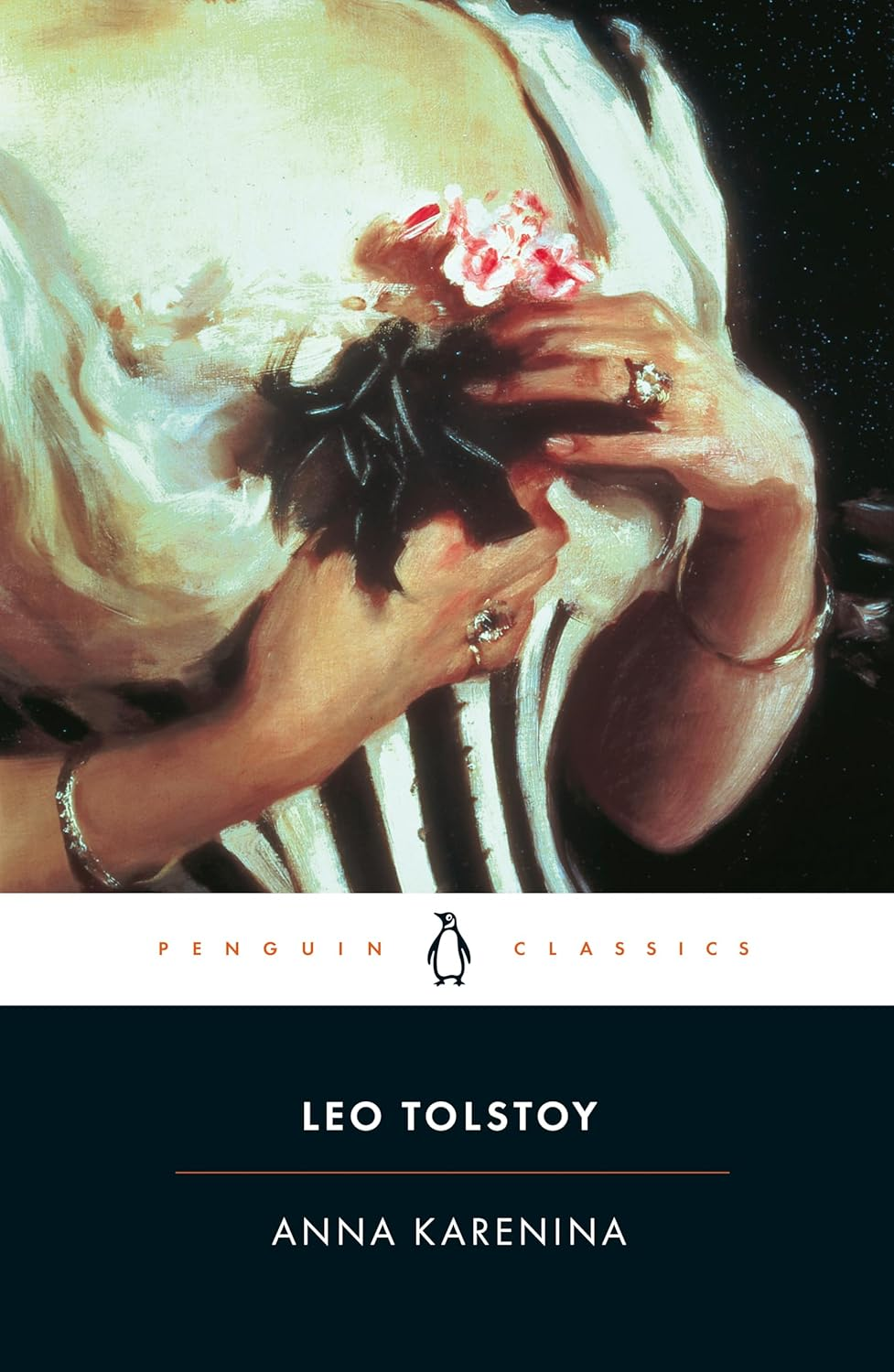Nietzsche On Art and Life
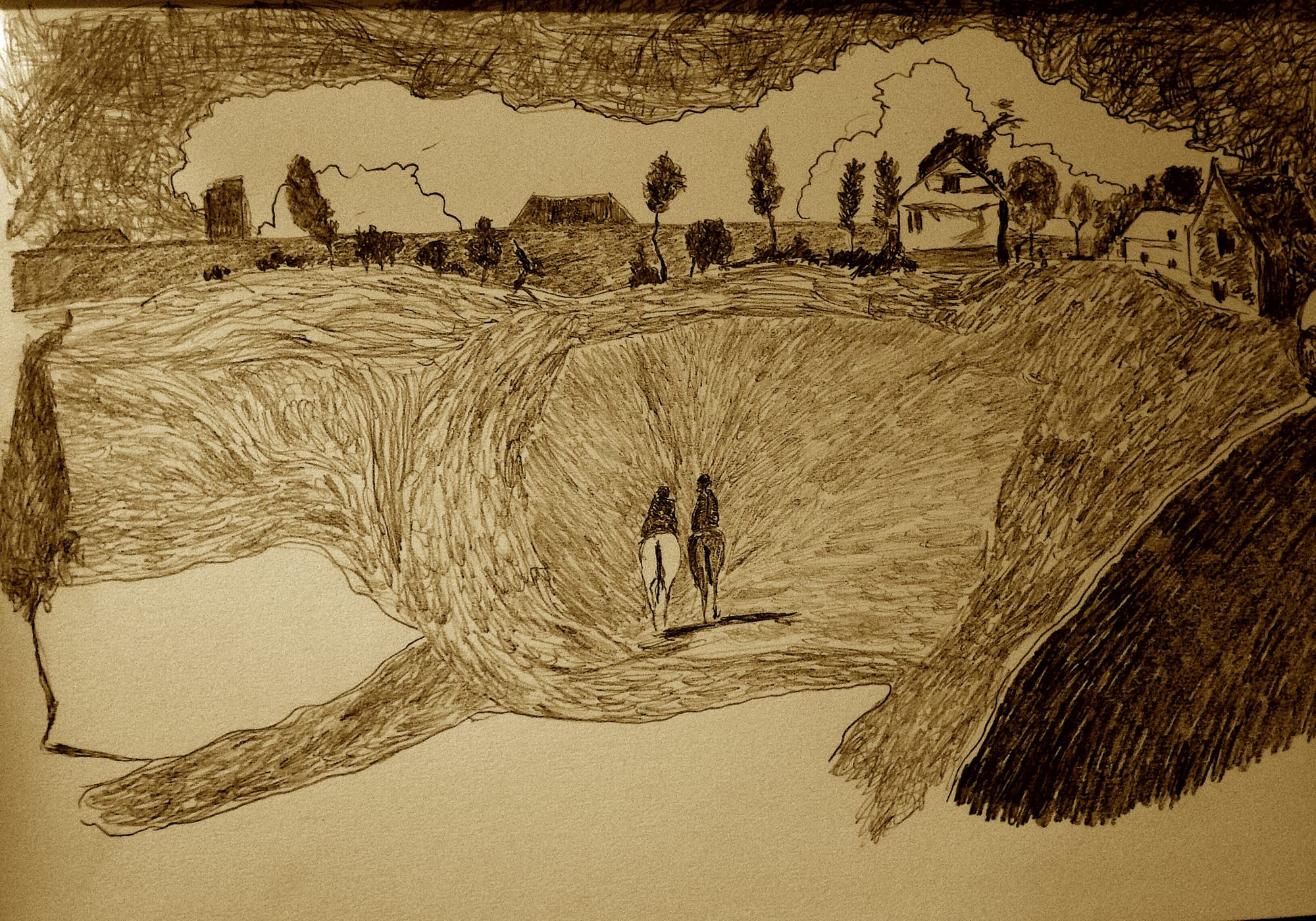

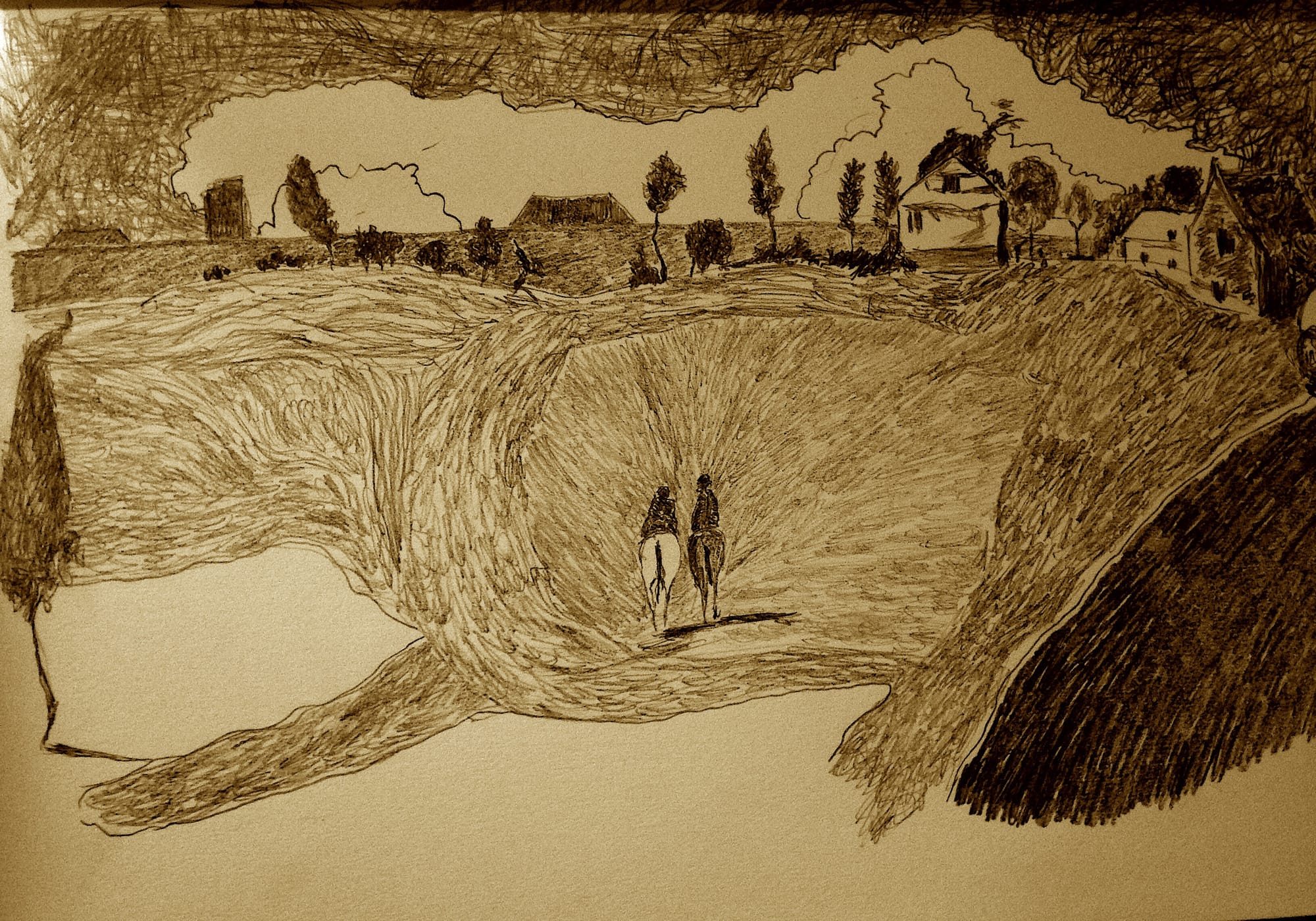
'Schopenhauer valorizes art chiefly for its capacity to bring us temporary peace and relief from the suffering engendered by willing; whereas for Nietzsche the value of art resides largely in its ability to bring us into closer contact with the basic facts about our existential predicament—but in a way that renders the apprehension of those facts (just barely) tolerable. For Schopenhauer, art is fundamentally about escape; for Nietzsche, it’s a means of reconciling us with those aspects of our condition that when encountered outside the aesthetic frame would be psychologically utterly destructive. '
'His question is not, “Is life truly justified?” but rather, “How can one continue to love life despite its cruelty and chaos?” Nietzsche’s worry is that without such an affective grounding, we risk falling into what he calls “practical nihilism,” a state of motivational paralysis in which we can no longer act or care. For this reason, Nietzsche’s notion of justification does not require epistemic validity. In fact, I’m inclined to think he believed that modernity can only justify existence through the conscious use of illusion - a kind of self-deception that enables us to regard life as worthy of affirmation.'
'Nietzsche distinguishes between many different kinds of nihilism, most of which he strongly opposes. For instance, he thinks “practical nihilism”—the idea that belief in a valueless world drains our energy and leads to despair—is genuinely dangerous. But there is another form of nihilism that he treats quite differently: what we might call value nihilism, the view that there are no value properties at all. Far from trying to overcome this, Nietzsche sometimes embraces it as a kind of liberation, even calling it a “divine way of thinking”.'
Daniel Came is the editor of two volumes on Nietzsche, both published with Oxford University Press, and the author of a forthcoming monograph on Nietzsche, as well as many journal articles and book chapters on Nietzsche, Schopenhauer, the philosophy of religion, ethics, aesthetics, the philosophy of death, and transhumanism.
3:16: What made you become a philosopher?
Daniel Came: The honest answer is: I’m not entirely sure. I’d like to believe that my deepest motivation is transparent to me, but as a Nietzschean I can’t help being sceptical about the possibility of such self-knowledge. What I can do, though, is recall some decisive moments. My first philosophical experience came around the age of six or seven, when my maths teacher asked the class where numbers end. A few classmates cheerfully rattled off six-digit guesses, but I remember being thrown into a kind of vertigo by the thought of infinity. The sheer strangeness of it upended my mind, and I loved that sensation. A few years later, in a music lesson, the same thrill returned. Our teacher - who had studied philosophy as an undergraduate and loved to digress - posed the question: Why is there anything at all, rather than nothing? I remember being stunned, not just by the grandeur of the question, but by its hidden power, the way it seemed to hollow out the ground beneath ordinary thought.
Around this time, I also found myself drawn to literature - Tolstoy and Dostoevsky especially - that probed the existential concerns which still preoccupy me: the value of existence, the problem of evil, the need for and nature of faith, the relationship between art and transcendence. That, I think, is what consciously motivated me to pursue philosophy in a more academic sense.
But there is also a deeper, more psychological story. Academic life in general, and philosophy in particular, catered to certain needs. Nietzsche is famously caustic about scholars who use the pursuit of knowledge as a retreat from the world. I suspect there’s something to that in my case: the scholarly life licenses a certain withdrawal. At the same time, I was drawn to philosophy’s anti-authoritarian impulse - the refusal to take anything on trust - and to the rigour and clarity it demands. I have an affinity for logic, systematic thinking, and modes of expression that are precise, literal, and explicit. And, if I’m honest, I also enjoy the adversarial cut-and-thrust of philosophical debate - it provides a legitimate outlet for one’s aggressive impulses!
For a while, though, I imagined I’d be a musician. I began an undergraduate degree in music but eventually withdrew, realising my ambition exceeded my ability. Reapplying to Cambridge to study philosophy felt natural: I already knew by then that I wanted a career in academic philosophy. At first, I was a little disappointed - the Cambridge syllabus seemed oddly narrow for undergraduates (in principle, one could graduate without reading anything pre-1900, apart from Hume’s Dialogues Concerning Natural Religion!). But the course came alive for me in my second year, in particular through Raymond Geuss’s brilliant lectures on Nietzsche. Edward Craig’s lectures on metaphysical realism and anti-realism were equally formative - I went to them almost as many times as Craig delivered them!
I stayed on for a master’s, writing on the philosophy of music with Craig, and on Nietzsche’s aesthetics with Geuss. Geuss became a major influence on me, both intellectually and personally, and even now - despite the golden age of Nietzsche scholarship we currently inhabit - I still regard his writings on Nietzsche as among the most interesting in the field.
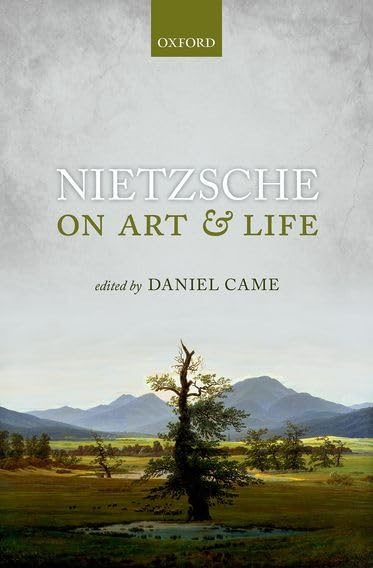
3:16: One of your interests is Nietzsche. Let’s start there. But not with Nietzsche but with Schopenhauer because Nietzsche is reacting to him isn’t he? So what were Schopenhauer’s views on metaphysics and art that were important to Nietzsche?
DC: Yes, I read Nietzsche as centrally concerned with a problem that was bequeathed to him by Schopenhauer: the problem of the value of existence. In his major work, The World as Will and Representation, Schopenhauer argued that upon cold and honest reflection no human life is preferable to non-being. Schopenhauer bases this claim on a number of distinct theses regarding the character of human existence: that suffering predominates, that all striving is ultimately futile, and that lasting fulfilment is unattainable.
Nietzsche takes this challenge extremely seriously. In fact, one of his lifelong preoccupations is how to resist Schopenhauer’s pessimistic conclusion—how to affirm existence—without simply denying what Schopenhauer rightly grasped: the sheer harshness and brutality of the human condition. Nietzsche calls that insight “Dionysian,” and he never abandons it.
You asked specifically about the influence of Schopenhauer’s views on art and metaphysics on Nietzsche. But I think that, even in Nietzsche’s first book, The Birth of Tragedy, which is ostensibly rooted in the concepts and categories of Schopenhauer’s metaphysics – the principium individuationis, the veil of maya, the primal unity, and so forth – Nietzsche deploys that Schopenhauerian vocabulary in the process of advancing a psychological thesis- specifically, a thesis about the nature of art in general and classical tragedy in particular.
Nietzsche did encounter in Schopenhauer the thought that art offers a kind of quasi-theological redemption from the suffering of life. But that was a fairly common idea in nineteenth-century German thought. And in any event, it’s developed very differently in Nietzsche. Schopenhauer valorizes art chiefly for its capacity to bring us temporary peace and relief from the suffering engendered by willing; whereas for Nietzsche the value of art resides largely in its ability to bring us into closer contact with the basic facts about our existential predicament—but in a way that renders the apprehension of those facts (just barely) tolerable. For Schopenhauer, art is fundamentally about escape; for Nietzsche, it’s a means of reconciling us with those aspects of our condition that when encountered outside the aesthetic frame would be psychologically utterly destructive.
3:16: You’ve argued against the thesis that’s often attributed to Nietzsche that the only justification for existence is aesthetic. Before examining your argument can you sketch for us the reasons why Nietzsche thinks existence needs justifying, and what he thinks it would be to justify it?
DC: As we’ve just discussed, Nietzsche inherited from Schopenhauer the central problem of how to affirm life in the face of suffering. For Nietzsche, this is, at least in part, an ahistorical problem—one that confronts all human cultures. At times, he even seems to approach Freud’s later idea that culture itself - art, religion, science - is an existential strategy, a way for human beings to feel “at home” in an otherwise indifferent world. In this light, the telos of culture, for Nietzsche, is to satisfy a deep human longing: the desire to see the world as fundamentally good, as something that aligns with our most profound needs.
But Nietzsche also treats this as a historically specific problem. The crisis becomes especially acute, he suggests, in late nineteenth-century Europe, in the wake of what he famously calls “the death of God.” The collapse of the old metaphysical and moral order intensifies the question: on what grounds can existence still be affirmed? When Nietzsche speaks of justifying existence, I think his concern is best understood psychologically rather than metaphysically. He is not searching for a rational or cognitive warrant that would prove life’s value. Rather, he seeks a prudential justification - one that can sustain our emotional and motivational attachment to life. His question is not, “Is life truly justified?” but rather, “How can one continue to love life despite its cruelty and chaos?” Nietzsche’s worry is that without such an affective grounding, we risk falling into what he calls “practical nihilism,” a state of motivational paralysis in which we can no longer act or care.
For this reason, Nietzsche’s notion of justification does not require epistemic validity. In fact, I’m inclined to think he believed that modernity can only justify existence through the conscious use of illusion - a kind of self-deception that enables us to regard life as worthy of affirmation. If that’s right - if life can be fully affirmed only under illusion -then Nietzsche begins to look less like an optimist and more like a subtle pessimist, one who ultimately shares more with Schopenhauer than he might have liked to admit.
Some have taken this to mean that Nietzsche’s project fails - that to affirm life under illusion is not genuine affirmation but mere self-delusion. Yet such an objection, Nietzsche would say, rests on a “moral prejudice”: the assumption that cognitive error must always be avoided, and that evaluative judgments are legitimate only if they correspond to some objective evaluative fact. Whether or not Nietzsche was right to reject this prejudice, any epistemic critique of his project misses the point unless it first undermines his reasons for placing prudential and psychological concerns above cognitive ones.
Still, even if we grant Nietzsche that much, a challenge remains. One might accept that truth is secondary to psychological vitality and yet still doubt whether an illusion, once recognized as such, could truly sustain our attachment to life. How could a justification we know to be false continue to move us, rather than collapse into yet another form of failure?
3:16: So how can art justify existence and somehow make sense of suffering? On the face of it it seems an unpromising move – after all pain in art isn’t the same as actual pain, nor is contemplating pain the same as experiencing pain. The whole thing seems to miss its target, or change the subject. What’s going on?
DC: That’s a really good way of putting the worry. Nietzsche is fully aware that art doesn’t erase pain in any literal or physical sense. What he’s getting at is something more radical: that art transfigures our relationship to existence itself, so that suffering no longer appears merely as something meaningless to be endured, but instead as part of a whole that can be affirmed.
In The Birth of Tragedy, tragedy doesn’t console us by denying pain; it intensifies our awareness of it. But it also gives that pain a form, a rhythm, a context that allows it to be experienced as meaningful. When we watch a tragic performance, we are confronted with destruction, violence, and death - but we are also swept up in the Dionysian sense of being part of life’s overflowing energy. The Apollonian form of art shapes that chaos into something we can perceive as beautiful. The result is not escape from suffering, but a kind of reconciliation with it.
So Nietzsche’s claim is that art can justify existence by making suffering intelligible in aesthetic terms—not by removing it, but by re-situating it within a vision of life that we can affirm. We come to see pain not as a senseless remainder, but as one side of the very energy that produces beauty, creation, and joy. That’s why he can say that “only as an aesthetic phenomenon is existence justified.”
3:16: You argue that something called Socratism is an additional justification. What is Socratism for Nietzsche – and doesn’t admitting this tame his position somewhat – isn’t he now according to you just saying we need a bit of illusion and a bit of truth to live by? How is the justification supposed to work and why doesn’t it offer an eternal justification?
DC: Socratism, for Nietzsche in The Birth of Tragedy, is essentially the spirit of rational inquiry - the drive that begins with Socrates and culminates in modern science and philosophy. What it offers is a distinctive way of justifying life: not through art, but through the pursuit of knowledge. The idea is that even if the world is harsh and filled with suffering, the activity of seeking truth can itself make life meaningful. In this sense, Socratism functions as a kind of existential project - the delight in inquiry becomes, as Nietzsche puts it, “the most compelling stimulus to existence.”
Now, it might look as though this simply reduces Nietzsche’s position to a compromise - a bit of truth, a bit of illusion, something to keep us going. But I think that misses the deeper point. Socratism is not just “truth plus illusion.” Rather, it rests on a very specific illusion: the faith that knowledge will ultimately cure existence, that by pursuing truth we will in the end eliminate suffering. And this is where Socratism proves unstable. Because the more rigorously science and philosophy pursue truth, the more they expose that very faith as illusory. In other words, Socratism undermines the conditions of its own power to console.
That’s why it can’t provide an eternal justification. It’s powerful - Nietzsche takes it very seriously as a competitor to art - but it is self-consuming. In contrast, art, and especially tragic art, doesn’t deny suffering and doesn’t rest on false hopes. It takes suffering up into form, into beauty, into transfiguration, and thereby offers a mode of affirmation that can last. So Nietzsche’s point is not that we need a little truth and a little illusion, but rather that different cultural forces offer rival ways of justifying life, and only art can sustain that role indefinitely.
3:16: You’ve looked at the role of will to power in Nietzsche’s attempt to find meaning for the terrible life – can you sketch for us what the contention is and what problems seem to arise from certain readings of this idea?
DC: The idea, central to Bernard Reginster’s reading of Nietzsche’s later philosophy, is that the doctrine of the will to power provides a way of revaluing suffering. If we understand the will to power as the drive to overcome resistance, then what had previously seemed intolerable - pain, loss, impermanence- can now be seen in positive terms. For on this model, suffering isn’t simply something that obstructs life; it’s constitutive of what we most value. To grow in power is to overcome resistance, and resistance just is what suffering amounts to. So the thought is that suffering can be welcomed not in spite of itself, but as the very material out of which our strength is forged.
That, at least, is the promise of this reading. But there are obvious difficulties. The positive revaluation of suffering in terms of will to power works only if the resistance in question is something that the agent can realistically hope to overcome. If the suffering is too great-if it destroys rather than tests one’s capacities- then it cannot be redescribed as an occasion for growth. Far from being the condition of power, it annihilates the very possibility of it. So there are limits built into this conception: not every form of resistance can be affirmed in the way Reginster suggests. Indeed, the whole problem of life’s value arises precisely because of such events—those forms of suffering and cruelty that cannot be integrated into any narrative of strength or mastery.
The difficulty here recalls Ivan Karamazov’s refusal to accept a world whose harmony is purchased at the cost of a child’s tears. For Ivan, certain evils are so absolute that no future justification, no metaphysical reconciliation, could ever make them acceptable. In a similar way, Nietzsche’s problem of affirmation confronts the same moral abyss- how to say “yes” to a world that contains atrocities which, by their very nature, seem to resist all revaluation. If Reginster’s reading depends on the possibility of transforming suffering into a vehicle of empowerment, then it falters precisely where the problem of life’s value is most acute: in the face of those experiences that destroy the very conditions of affirmation. This suggests that even in Nietzsche’s later writings, the affirmation of life cannot dispense entirely with illusion - with forms of falsification, evasion, or aesthetic distancing that keep the worst horrors from overwhelming us.
So while the will to power provides Nietzsche with a powerful psychological mechanism for revaluing suffering, it cannot, on its own, secure a fully unconditional affirmation of existence. And it is here that the enduring necessity of artistic illusions reasserts itself. For Nietzsche, art is not an ornament upon life but a means of transfiguring it - of reshaping the intolerable into something that can be lived with, even cherished. The special genius of a Sophocles or a Dante or a Tolstoy is to take the worst horrors - the murder of kin, the torments of the damned, the full spectacle of human wretchedness - and weave them into works of such imaginative power that they reconcile us, at least temporarily, with the world that contains them. Their art does not affirm the horrors themselves; rather, it transforms them into symbols through which we can once again find meaning, beauty, and even a measure of peace. Through this aesthetic transfiguration, we do not deny the world’s suffering but learn, paradoxically, to live with it - to see in it something that can be borne, and perhaps even loved.
In this sense, art accomplishes what the will to power alone cannot. It mediates between our knowledge of life’s horrors and our longing to affirm life nonetheless. It converts what might otherwise drive us to nihilism into a vision through which existence becomes, once again, something that can be affirmed—not because it is good, but because it has been made beautiful.
3:16: So you think illusion has a role to play in making sense of what he’s arguing don’t you?
DC: Yes, absolutely. I think illusion is indispensable to Nietzsche’s account of how life can be affirmed. Already in The Birth of Tragedy, the problem is that a completely unvarnished view of existence — what he calls “the insight into the horrible truth” — would drive us towards despair and even a longing for non-existence. Illusion, in the form of art, myth, or transfiguration, is what makes life tolerable, even affirmable.
What’s striking is that Nietzsche seems to anticipate something like what psychologists now call depressive realism - the idea that those who see reality most clearly, without comforting distortions, are often more prone to depression, while most of us rely on a degree of self-deception or selective perception to function. For Nietzsche, illusion isn’t a defect in need of correction but a vital condition for flourishing.
At the same time, he recognises that the amount of illusion necessary varies across individuals. Some, like the ancient Greeks he admires, had a cultural vitality that enabled them to endure and even seek out more of the Dionysian truth, offset by just enough Apollonian illusion to prevent collapse. Others need more protective veiling, more distance or falsification, to keep life bearable. Nietzsche’s point, then, is not that all human beings need the same illusions, but that some degree of illusion is universally required. Without it, the sheer weight of life’s “terrifying and questionable character” would overwhelm us. So yes, illusion is not incidental but central: it is the condition that enables affirmation of life at all, even for the strongest among us.
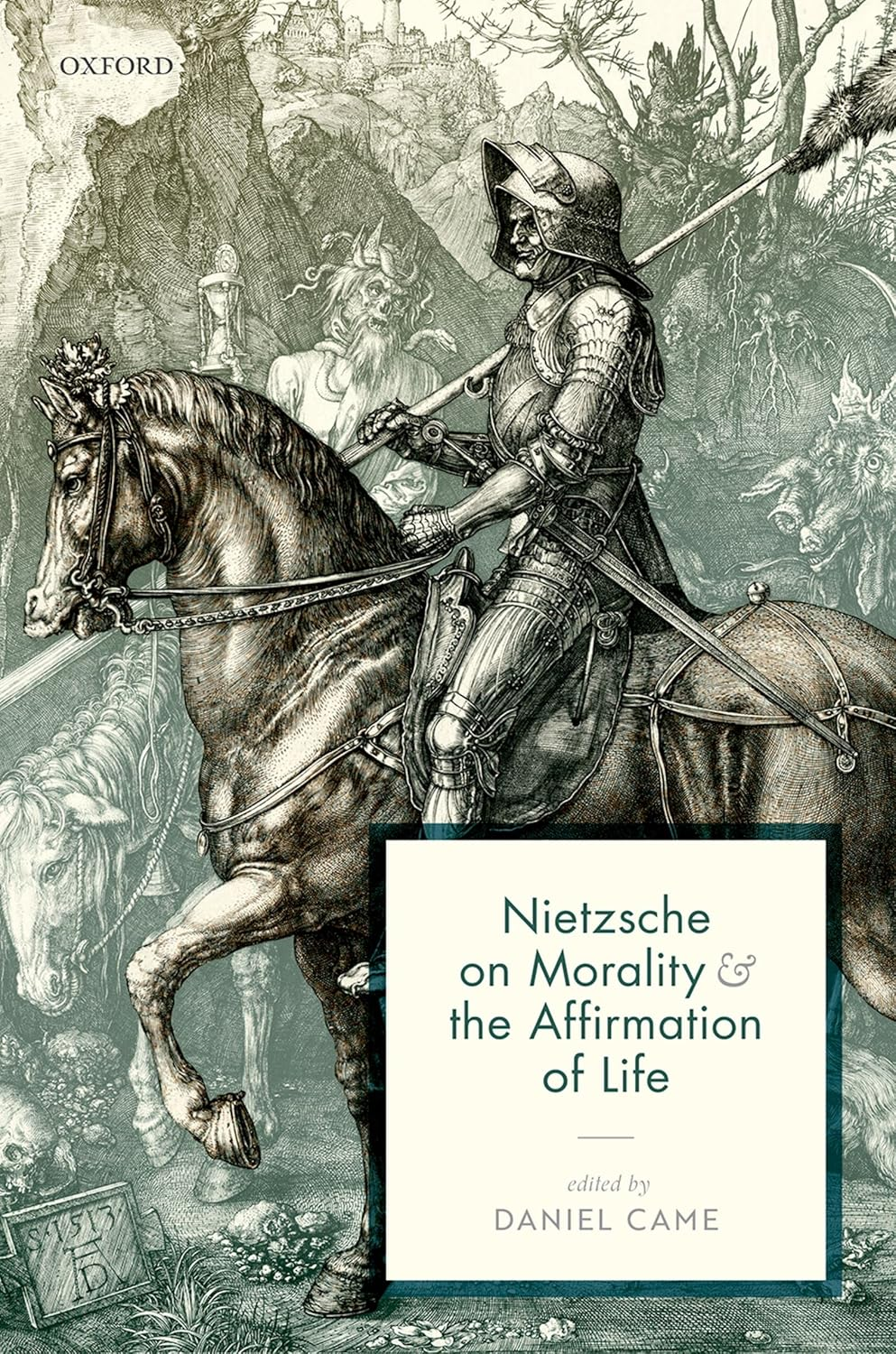
3:16: You’ve argued that Nietzsche is a species of Christian thinker working on a secular variant of theodicy. Can you first sketch for us how Nietzsche engages with Christian theodicy and why you conclude from this that he’s complicit with the putatively life-denying presuppositions of Christianity?
DC: Nietzsche’s engagement with Christian theodicy can be understood by examining the conceptual structure that underlies both projects. Traditional Christian theodicy arises in response to what William Rowe identifies as the problem of gratuitous evil: the world contains suffering that is neither necessary for achieving greater goods nor proportionate to moral desert. Christian theism posits an omnipotent, omniscient, and benevolent God, yet the prevalence of gratuitous suffering seems to contradict the goodness of such a deity. Theodicy, in the Christian sense, is therefore a normative project: it seeks to justify or vindicate the world as a morally intelligible and ultimately good place despite the existence of suffering. This involves two central assumptions: first, suffering is intrinsically negative and threatens the overall value of life, and second, justification entails identifying a principle, reason, or overarching purpose that renders such suffering morally or existentially acceptable.
Nietzsche’s project mirrors this structure, albeit in a secular, post-Christian form. He is centrally concerned with the “justification of existence” and the “affirmation of life” in the face of the world’s harsh, malevolent, and apparently undesirable aspects. Nietzsche explicitly frames this task in quasi-theological terms at multiple points, describing art as “the only satisfactory theodicy” (BT, 24) and characterizing his “pessimism of strength” as culminating in an “absolute affirmation of the world” (WP, 1019). Across his works, he seeks to revalue suffering: rather than seeing it as evidence that life is objectionable, he treats it as an opportunity to cultivate strength, creativity, and love of fate (amor fati). He echoes Leibnizian theodicy in asserting that even monstrous suffering may contribute to the overall desirability of existence, and that life, in its totality, is worthy of affirmation.
Critically, Nietzsche’s engagement with theodicy is not theological but psychological. Traditional Christian theodicy, Nietzsche argues, is motivated by an underlying anxiety about life’s suffering - a need to maintain optimism about existence. The metaphysical apparatus of God and providence is, in Nietzsche’s terms, a secondary, culturally mediated expression of this psychological need. In other words, whether couched in theological or secular terms, the fundamental project is the same: to vindicate existence in the face of suffering. Nietzsche acknowledges that even secular ideologies - liberalism, utilitarianism, socialism -often inherit this impulse, showing that the underlying “Christian” structure persists outside explicitly religious contexts.
This explains why Nietzsche can be seen as, malgré lui, a Christian thinker” despite his explicit critique of Christianity. His project retains the Christian normative presupposition that suffering is prima facie negative and must be justified or reinterpreted. Nietzsche does not reject the premise that suffering constitutes a problem; he merely attempts to provide a different solution by revaluing suffering as life-affirming. In this sense, his work is complicit with the life-denying presuppositions of Christianity: it continues to treat suffering as an obstacle that must be morally or existentially reconciled, rather than simply as a natural, neutral feature of existence to be embraced unproblematically.
Put differently, Nietzsche inherits the Christian “problem of suffering” while attempting a secular solution. He remains bound to the same evaluative framework that defines suffering as initially negative and in need of justification, rather than rejecting the framework itself. His revaluation of values, therefore, while transformative, is still tethered to the underlying Christian impulse to render existence morally acceptable despite its inherent harshness.
3:16: Is his conception of Rausch as different from Kant’s concept of ‘disinterestedness’ as he thinks and if not doesn’t that weaken his claim that he’s escaping the ascetic planet and reevaluating values with its use?
DC: According to Chris Janaway’s influential interpretation of Nietzsche, the concept of disinterestedness with its purported claim to objectivity (in the Kantian sense of the universal a priori conditions of subjectivity) is an expression of the ascetic ideal or ‘will to nothingness’. I tend to think that Nietzsche’s criticisms rest on a misinterpretation of the notion of disinterestedness; and also that, although Nietzsche supplants the notion of disinterestedness with his own of Rausch (intoxication), he derives a conception of aesthetic experience from Rausch that is closely related to the Kantian-Schopenhauerian notion of aesthetic experience as defined by disinterestedness. According to Nietzsche, Schopenhauer’s valorization of will-lessness and the abandonment of individuality is an expression of the ascetic ideal and hence a profound devaluation of and hostility towards one’s own self.
As expressions of the ascetic ideal, Christian moral values are based upon an axiology that is inherently nihilistic, in the specific sense that, in Janaway’s words, it is ‘marked by a repeated gravitation towards will-lessness’. What is nihilistic about this is that states of will-lessness are on a continuum with ‘nothingness’. They instantiate a death instinct, a torturing desire no longer to exist. Nietzsche describes this metaphysic of value as symptomatic of ‘a sublime lure and temptation into nothingness’ (GM, P: 5), and he construes Schopenhauer’s conception of the subject of aesthetic experience as a ‘pure, timeless, will-less, painless subject of knowledge’ (WWR 1: 178–9)6 as derived from this axiology, and as itself an artefact of the Christian project of excluding the empirical, the sensuous, the self, and the body from the realm of value.
Nietzsche’s critique of disinterestedness is therefore continuous with his most abiding and important critical project, namely, the overcoming of established Christian postulates concerning the putatively evil orientation of the self, desire, the body, and so forth, and the need for purification from all material contamination (all constitutive presuppositions of the wider system of theologico-moral ends which Nietzsche regards as the Christian interpretation of existence). Nietzsche’s charge against Kant and Schopenhauer is that by making disinterestedness a necessary condition of aesthetic pleasure, they in effect enlist aesthetic pleasure to the cause of denigrating the self, desire, the body, and so forth. Nietzsche bases his rival aesthetic on Greek tragedy. The ecstasy or rapture of the participants in Greek tragedy is that of participants in a religious rite, in that the distinction between artist and work, work and audience is collapsed. In Nietzsche’s view, this is so because, in the experience of art, one shares in the artist’s Dionysian transcendence of individual subjectivity. While the Schopenhauerian aesthetic subject attains an exceptional state of purity that allows it to discover the transcendental conditions of life, the Nietzschean aesthetic entails a complete destruction of the subject.
To be sure, unlike Schopenhauer’s conception of disinterestedness, Nietzsche’s notion of Rausch does not exclude the processes of desire. It is a necessary condition of disinterestedness, for Schopenhauer, that all desire is entirely suspended. Nietzsche, by contrast, speaks of the intoxication that comes in the train of all great desires, but he quite clearly conceives of such intoxication as entailing both a dissolution of self-consciousness and a (phenomenological, if not metaphysical) falling away of spatial and temporal awareness. He says, for example, that in the throes of Dionysian ecstasy the subject is ‘disposed of [. . .] whether he will or no’ (WP: 798); and he explicitly associates Rausch with ‘the retardation of the feelings of time and space’ (WP: 799; cf. WP: 800). It therefore seems that Nietzsche takes over two central strands of Schopenhauer’s aesthetic theory, viz., the thesis that aesthetic pleasure entails a dissolution of self-consciousness and the thesis that aesthetic pleasure entails a falling away of the intuitions of space and time. So, despite the vehemence of his attack on the notion of disinterestedness, Nietzsche’s own rival conception of aesthetic experience is strikingly close to the Kantian-Schopenhauerian conception he seeks to repudiate.
3:16: How does Nietzsche try and mobilize a deflationary position in respect of the whole problem of life-affirmation, and why don’t you think he succeeds in moving away from the Christian tradition?
DC: In his later works, Nietzsche increasingly tries to dissolve, rather than solve, the whole problem of life’s justification. Whereas in The Birth of Tragedy the value of existence is still treated as a real and pressing question, by the time of The Gay Science he regards the question as incoherent, even absurd. The idea that human beings might weigh the value of life as if they were external judges of existence is, he says, a “monstrous stupidity” (GS 346). Here he mobilizes what I’d call a deflationary strategy: rather than refuting pessimism in philosophical terms, he treats both pessimism and optimism as symptoms of physiological and psychological conditions. To condemn life, he suggests, is no more a rational verdict than succumbing to cholera—it is an expression of morbidity.
This deflationary move is radical. It shifts the whole debate away from metaphysics or theodicy and places it in the register of psychology and health. And when he insists in Twilight of the Idols that “the value of life cannot be assessed” (TI II, 2), he seems at times to be making an even stronger claim - that judgments about life’s value are not just misguided but meaningless, a kind of category mistake. In that sense Nietzsche flirts with the idea that life is not good or bad, but beyond good and bad altogether.
The difficulty, though, is that Nietzsche’s own attempt to make this dissolution into a basis for affirmation runs into problems. He sometimes suggests, following a line Bernard Williams later echoes, that the realization there is “no bad news” in history - that nothing can be judged as evil in any ultimate sense - can itself be experienced as “good news.” But logically that inference doesn’t hold. If life is literally beyond evaluation, then one cannot consistently treat that as itself a positive evaluation. Yet while the inference fails on strictly logical grounds, it may nevertheless hold in a psychological sense: the recognition that there is no foundation for condemning life can alter our evaluative stance, allowing us to inhabit the world differently—without ressentiment, without grievance, without the posture of cosmic complaint. In this way, the “dissolution” of the problem itself can take on the affective tone of affirmation, even if it is not rationally entailed.
And this is where I think Nietzsche fails to extricate himself from the Christian tradition. In seeking emancipation from the need for a theodicy, he ends up recasting the emancipation itself as a kind of theodicy—a “redemption from the need for redemption.” He wants us to be free of the Christian demand for cosmic justification, but his way of presenting that freedom often borrows the very tropes of redemption and salvation he is trying to escape. As Simon May has noted, what Nietzsche offers looks like a “new redemption,” a transfigured but still recognizably Christian gesture.
So the paradox is that Nietzsche’s most radical attempt to overcome the Christian horizon still bears its stamp. The logic of theodicy - this impulse to see suffering as something to be explained, transfigured, or redeemed - remains alive even in his fiercest attempt to dissolve it. And that, I think, shows just how deep Christianity’s hold on the Western imagination runs, even in its most outspoken critic.
3:16: Does this shed light on Nietzsche’s relationship to nihilism?
DC: Nietzsche distinguishes between many different kinds of nihilism, most of which he strongly opposes. For instance, he thinks “practical nihilism”—the idea that belief in a valueless world drains our energy and leads to despair—is genuinely dangerous. But there is another form of nihilism that he treats quite differently: what we might call value nihilism, the view that there are no value properties at all. Far from trying to overcome this, Nietzsche sometimes embraces it as a kind of liberation, even calling it a “divine way of thinking”. The reason is simple: if value judgments about life can never be true, then life is neither good nor bad. And if that’s the case, then there’s no coherent way to complain about existence—no grounds for lament, resentment, or the demand for a theodicy.
Normally, nihilism is seen as a recipe for despair or even suicide. But Nietzsche realized that value nihilism could paradoxically be the basis for a new kind of optimism. As Thomas Nagel once pointed out, if nothing ultimately matters, then that fact doesn’t matter either. In other words, it can’t be bad that nothing is good or bad. This is why Nietzsche criticizes the inconsistency of the “pathos of ‘in vain’”: the nihilist who claims life has no meaning, yet still laments that fact. For Nietzsche, once we accept that life is beyond good and evil in this deep sense, existence becomes incapable of reproach, not because it is “good,” but because the very language of evaluation no longer applies.
This doesn’t mean Nietzsche thinks value nihilism gives us a rational argument for optimism. On a strict reading, the truth of value nihilism makes no normative difference at all. But for someone like Nietzsche, long haunted by the possibility that life might be radically defective, the realization that life cannot be evaluated in such terms may feel like a relief. It silences the demand for justification altogether. If no world is better or worse than this one, then the grounds for complaint vanish, and what remains is the possibility of affirmation—the attitude of wanting nothing to be other than it is.
3:16: You’ve also engaged in some debates within the philosophy of religion. One issue is that of whether we can ever have grounds for entering God into our ontology. You say we don’t. Why not?
DC: I don’t think we have grounds for admitting God into our ontology because, if God is conceived as omnipotent, then God is explanatorily impotent. In my 2018 paper ‘Theism and Contrastive Explanation’, I argued that explanation essentially works contrastively: when we explain why p rather than ~p, we need to cite a factor that makes a genuine difference between the two possibilities. But with God, no such explanatory difference is possible.
Since God is omnipotent, there is no state of affairs He could not bring about, and no contingent truth He could not make true. That means for any fact p, “God caused p” is just as plausible as “God caused ~p.” The effort required of God to bring about either possibility is negligible, given His infinite power. So citing God never distinguishes p from ~p, which is what any genuine explanation must do.
The upshot is that, paradoxically, God’s supposed omnipotence makes Him explanatorily inert. If God explains everything equally well, then He explains nothing. And since explanation is one of the central ways we justify positing entities in our ontology, this leaves us with no principled grounds for including God.
3:16: The pandemic made the fear of death a live issue. You see it as a form of reasoning that helps regulate emotions don’t you – can you sketch for us how you understand this as working?
DC: Well, I think that what regulates our emotions in relation to death is not fear itself, but the various forms of death denial in which human beings engage. The idea draws on a long line of thinkers - La Rochefoucauld, Schopenhauer, Nietzsche - who all recognized that we are psychologically incapable of looking mortality “steadily in the face.” Were we to confront directly the full implications of our extinction - the permanent annihilation of consciousness, the loss of everyone we love, the eventual disappearance of everything we value - it would, as William James suggests, destroy our capacity to function. What allows us to live, then, are the subtle psychological and cultural strategies that keep this knowledge at a distance, transforming the fact of death into something we can bear without being undone by it.
So rather than face death head-on, we reason in ways that protect us from its emotional impact. I describe this as motivated reasoning: a cognitive strategy that helps us regulate fear and anxiety by converging on beliefs or attitudes that make life more bearable.
Death-denial is one example of this. We construct beliefs, narratives, or arguments - whether religious, philosophical, or technological - that soften or obscure the brute fact of our mortality. Ancient immortality myths, Epicurean claims that 'death is nothing to us,' or today’s transhumanist hopes for technological immortality all serve, in different ways, to reduce the emotional discomfort that comes from recognizing death’s finality. Another form of death denial lies in social norms that discourage open conversation about death, a subtle but powerful kind of inauthentic evasive concealment. By stigmatizing or silencing discussion of mortality, societies make it easier for individuals to avoid confronting the inevitability of their own end.
What’s important, though, is that this kind of reasoning isn’t necessarily irrational. In cases where a problem is genuinely intractable - where nothing can be done to change the situation - denial can actually be a rational and adaptive strategy. If death really is permanent annihilation, then acknowledging it too fully could paralyze us. Denial, in that sense, functions like a psychological immune system: it allows us to live meaningfully in the face of a reality that, if seen without mediation, might be intolerable.
3:16: Where does this leave those positions – held by for example the Epicureans – that hold that the rational attitude towards death is indifference?
DC: The Epicurean stance that the rational attitude toward death is indifference looks, to me, less like a cold piece of philosophy and more like a classic case of death-denial. Epicurus tells us that “death is nothing to us” because, once we are dead, there is no subject left to suffer harm. But this argument only really works if one is already indifferent to life itself. For as long as we have unfulfilled desires, death frustrates them, and it’s incoherent to claim indifference to the loss of what we actively desire or care about.
That said, the real question is whether Epicurean reasoning is simply mistaken or whether it is motivated by denial. I think the balance of evidence points to denial. The Epicurean conclusion is counterintuitive - virtually everyone regards death as bad at least in some respects. It is also false, insofar as it ignores the way death frustrates our desires. And finally, it is psychologically beneficial, in that it relieves anxiety about our mortality. When an argument checks all three of those boxes—false, counterintuitive, and well-being-enhancing—it is reasonable to suppose that denial is at work. In other words, Epicurean indifference to death looks less like a purely rational conclusion, and more like a strategy of motivated reasoning designed to blunt the terror of our annihilation.
3:16: And what would Nietzsche say about the radical prolongation of life and the denial of death – and what would you say?
DC: Nietzsche’s view on the radical prolongation of life and the denial of death would likely be critical, though his own reticence on death makes his position somewhat complex. On the one hand, he seems to take pleasure in observing that people avoid thinking about death (“it makes me happy to see that men do not want to think at all of the idea of death.” This suggests he recognized death-denial as a common psychological mechanism, one that spares us from the fear of annihilation.
On the other hand, one could argue that Nietzsche’s project of life-affirmation is inherently tied to the reality of mortality. To affirm life fully, globally, and without reservation, arguably requires affirming its defining limit: death. To evade or deny mortality through extreme life-extension or transhumanist projects would be to sidestep a core aspect of existence. In doing so, one risks undermining the very affirmation Nietzsche prizes, because affirming life without its limits is no longer the same kind of affirmation—it risks becoming a shallow, equivocal stance that ignores the conditions that make life meaningful and intense.
From my perspective, then, while we can understand the desire to evade death and prolong life, Nietzsche’s insight serves as a caution: the true affirmation of life likely involves embracing its finitude. Death is not merely a limit to be circumvented, but a defining feature of existence that shapes our values, desires, and engagement with the world. Radical life-extension, if it comes at the cost of denying mortality, may paradoxically diminish the very life it seeks to enhance.
3:16: And for the readers here at 3:16, are there five books you could recommend that will take us further into your philosophical world?
DC: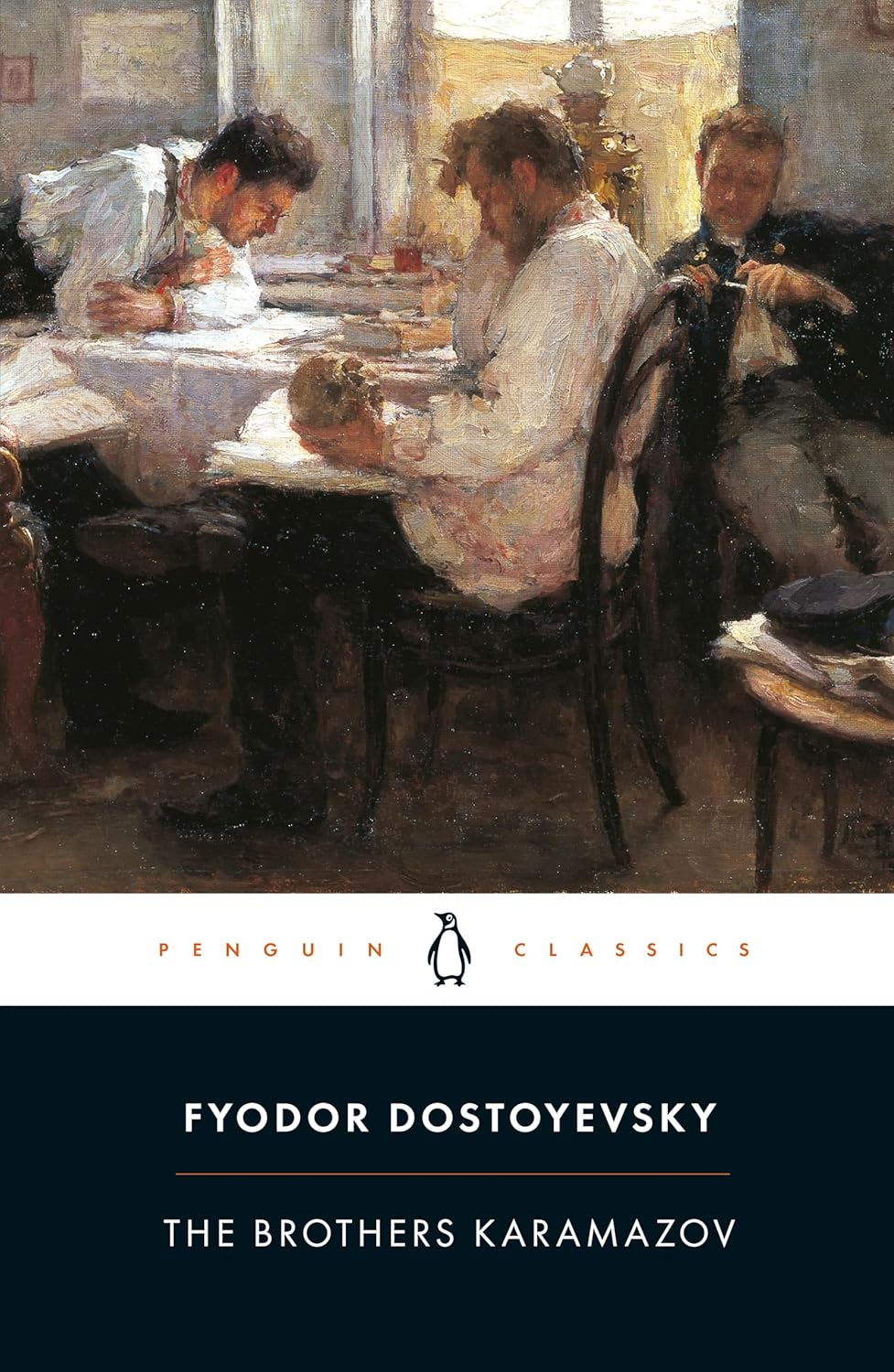
Fyodor Dostoyevsky, The Brothers Karamazov
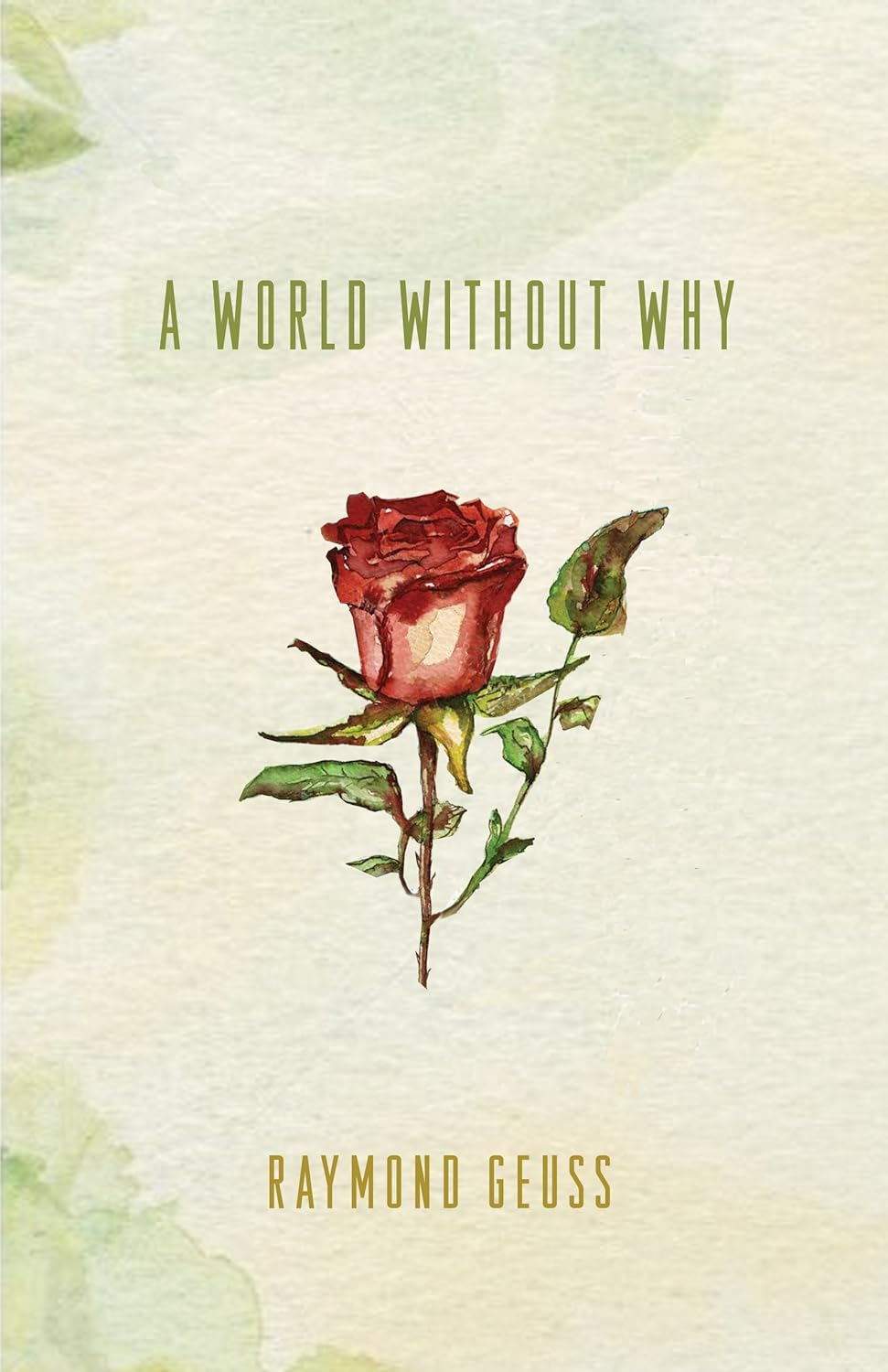
Raymond Geuss, A World Without Why
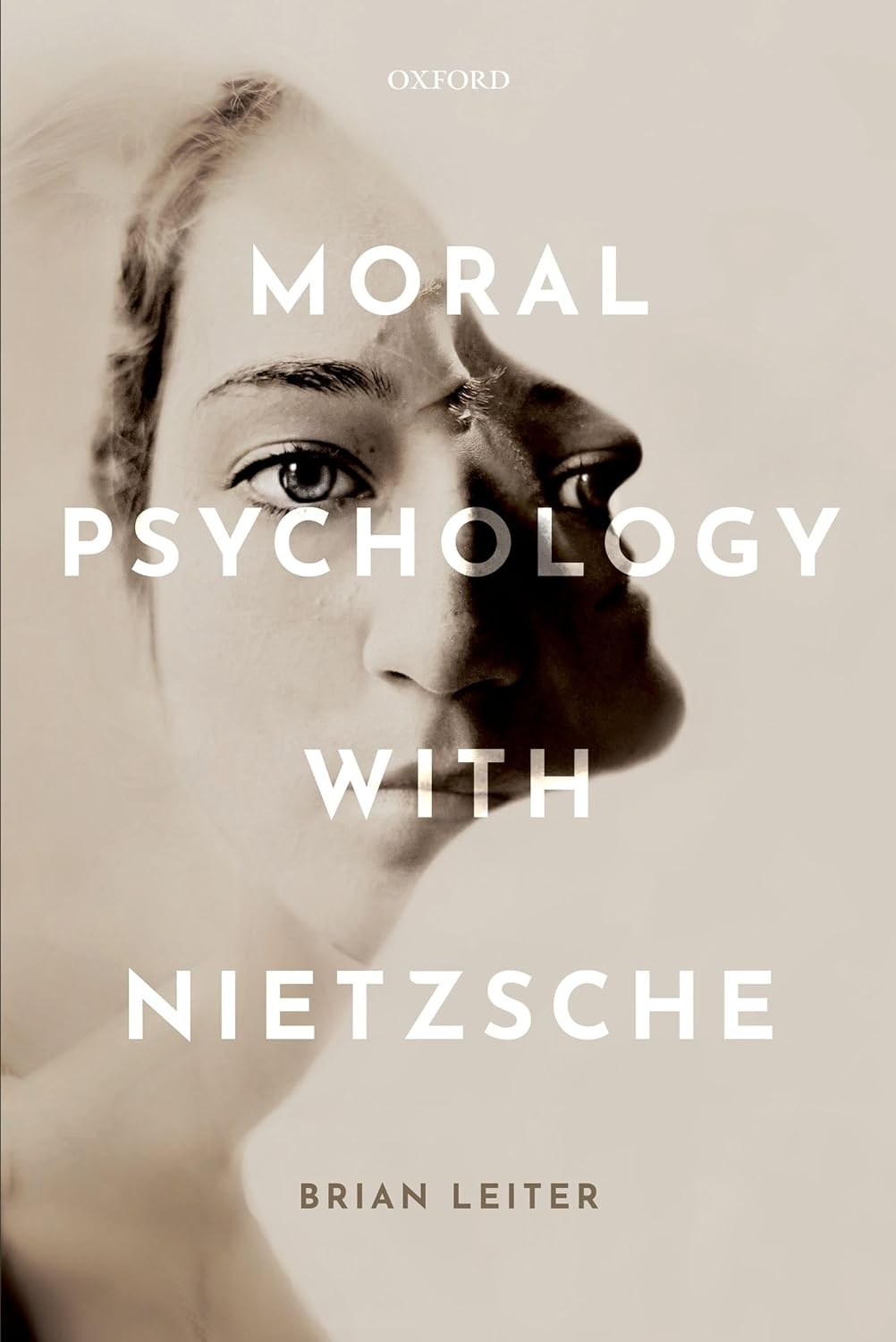
Brian Leiter, Moral Psychology with Nietzsche
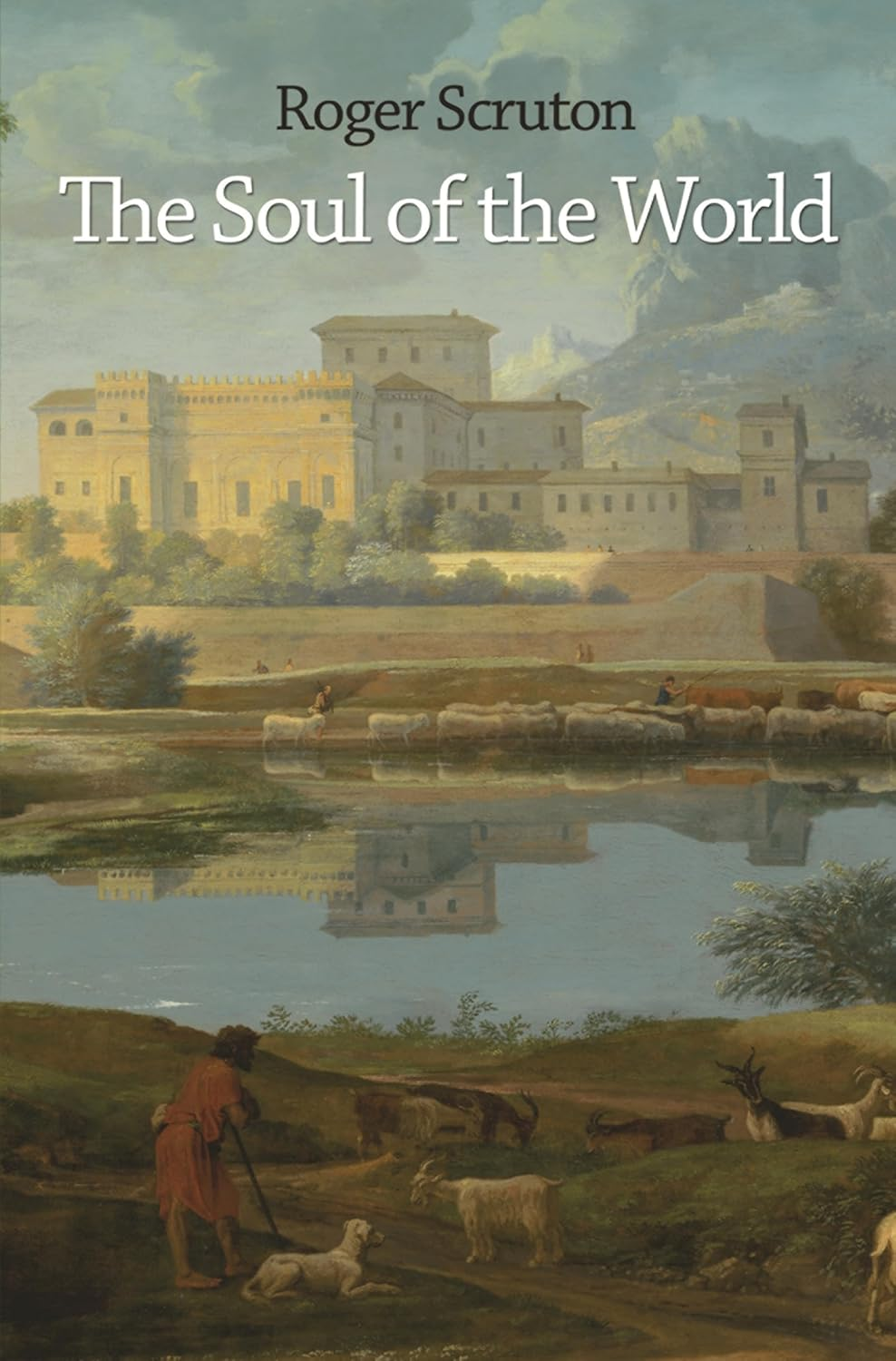
Roger Scruton, The Soul of the World
Leo Tolstoy, Anna Karenina
